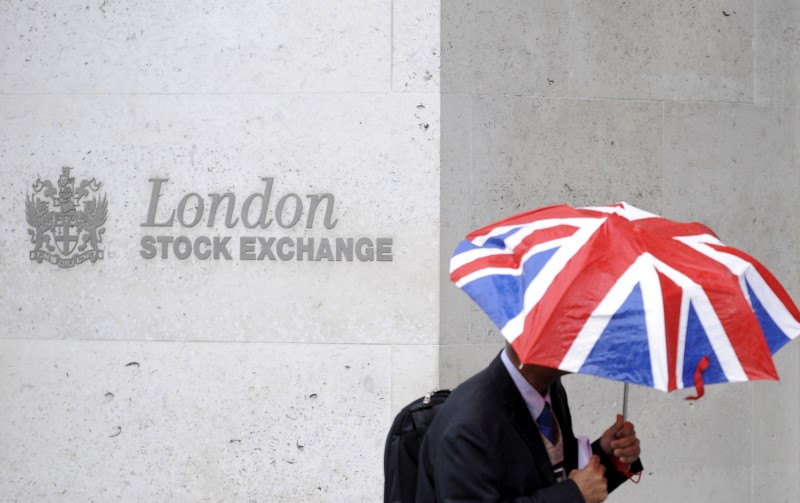By Kit Rees
LONDON (Reuters) - Britain's top share index advanced for a fifth straight session to its highest level in nearly a month, with a sharp rally in basic resources stocks on the back of stronger metals prices supporting the broader market.
UK mid-caps (FTMC) and small caps (FTSC) both hit record closing highs, posting gains of 0.2 percent and 0.4 percent respectively on the day.
The blue-chip FTSE 100 index (FTSE) ended 0.3 percent higher at 7,278.92 points after hitting an intra-day high of 7,298.47, the highest level since mid-January. It now stands some 75 points below its record peak scaled on Jan. 16.
The UK mining index (FTNMX1770) surged 2.2 percent as the price of copper touched a 20-month high on the back of supply worries after shipments were shut off from the world's two biggest copper mines. Prices of the other major industrial metals also gained. [MET/L]
"Not surprisingly the basic resource sector has driven the gains, with Anglo American and Glencore leading the gainers," said Michael Hewson, analyst at CMC Markets.
Shares in Glencore (L:GLEN), Anglo American (L:AAL), Rio Tinto (L:RIO) and Antofagasta (L:ANTO) climbed between 2 percent and 4.2 percent.
A number of price-target upgrades also helped the sector. Glencore was raised to "equal weight" from "underweight" at Morgan Stanley (NYSE:MS), while RBC Capital Markets raised Rio Tinto's (L:RIO) target price.
"Post 2016 Glencore's valuation multiples, financial risk, downside to PT and risk reward skew are similar to its London peers," Morgan Stanley analysts said in a note.
"Reinvestment or return of excess cash is the key value driver ahead."
An upgrade from Peel Hunt to "add" from "hold" helped Hargreaves Lansdown (L:HRGV) rise 2.1 percent, with analysts citing a stronger-than-expected first-half performance in its results last week.
"As much as the financial returns, in our view the statement last week confirmed the power of Hargreaves’ business model," Peel Hunt analysts said in a note, singling out the development of the company's HL Savings unit.
On the macroeconomic front, the European Commission said that Britain's GDP growth was forecast to fall from 2 percent in 2016 to 1.5 percent this year. However, it was better than the previous estimate of 1 percent.

The market showed little reaction to data showing British households kept a tighter grip on their credit cards last month as spending grew at one of the slowest annual rates in the past three years, adding to signs that consumer spending is starting to lose momentum.